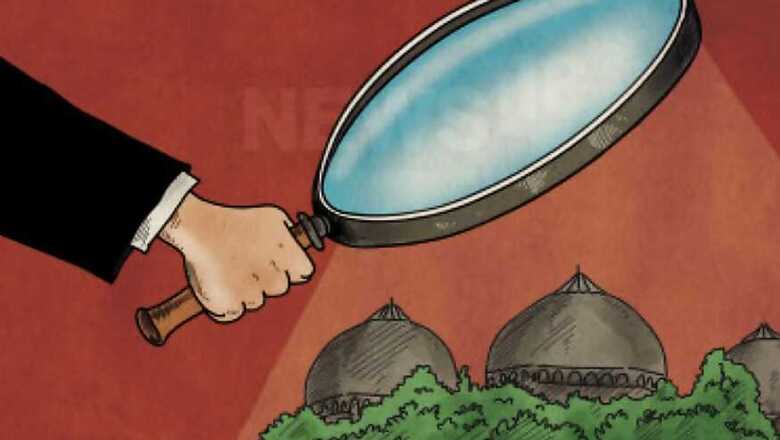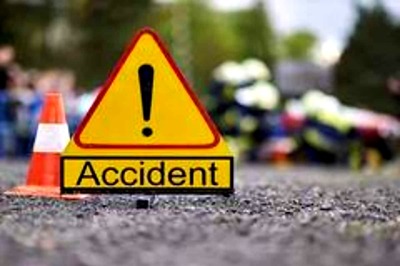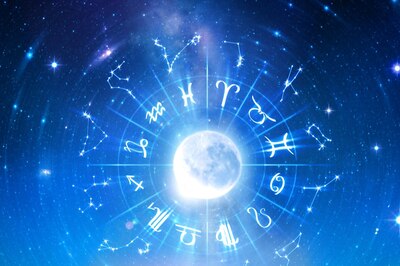
views
New Delhi: The decision by Chief Justice of India Ranjan Gogoi to set up a Constitution Bench for deciding Ramjanmabhoomi-Babri title dispute is not only surprising, but also a first of its kind.
There is perhaps no precedent in the Supreme Court when a Constitution Bench has been set up by way of an administrative order of a CJI without there being a reference by a bench of lesser composition, or questions having been framed in the matter to show its necessity.
Justice Gogoi's order is unique also because it has apparently nullified a judicial order in the same case whereby the prayer for a Constitution Bench had been declined by a three-judge bench.
On Tuesday evening, the Supreme Court registry issued a notice, informing that a five-judge bench comprising CJI Gogoi, Justices SA Bobde, NV Ramana, Uday U Lalit and DY Chandrachud will be hearing the contentious case on January 10.
It surprised many since the three-judge bench, by its judgment in September last year, had ruled there is no need for the Ramjanmabhoomi-Babri title dispute case to be referred to a Constitution Bench.
By 2:1, this bench maintained that the matter has to be decided purely as a land dispute, and as an appeal against a judgment in a civil suit.
Subsequently, this matter got listed twice before the benches headed by CJI Gogoi, who finally fixed January 10 when the "appropriate bench" will to decide the future course.
Despite a categorical judgment overruling the need of a Constitution Bench in this case, Justice Gogoi, under his administrative powers, has now decided to have this matter heard by a five-judge Constitution Bench.
Under the Supreme Court Rules 2013, the CJI has the authority to constitute any bench "consisting of not less than two judges" to hear any cause, appeal or matter.
Further, the Supreme Court Handbook on procedure also lays down that "the Chief Justice may, from time to time, constitute a Bench consisting of five or more Judges for the purpose of hearing any other cause, appeal or matter."
Therefore, the CJI's powers to constitute a bench of a strength higher than two for deciding any case in the apex court is apparently not restricted and depends upon his discretion and wisdom.
What, however, is novel that no other CJI has exercised this power to set up a bench of five-judges right in the face of a judgment that negated the prayer for a Constitution Bench.
Even for a new matter of immense significance and constitutional importance, the practice in the Supreme Court has been that it gets listed before a bench of two or three judges and then a reference order is passed to place it before the CJI for setting up a Constitution Bench.
Further, Article 145(3) stipulates that any matter that involves “a substantial question of law as to the interpretation of this Constitution" should be heard by a bench of not less than five Judges of the top court.
Thus, by setting up a Constitution Bench, the CJI has probably also indicated that it would be open for the parties to debate on the substantial questions of law relating to the constitutional text and its interpretation although the previous bench had shot down this plea through a reportable judgment of the Supreme Court.
During the Constituent Assembly debates, Sir Alladi Krishnaswamy Aiyer had emphasised: "A constitutional point may be raised by a party in the course of a general appeal in which other questions are raised. A court hears the appeal; it comes to the conclusion that really the constitutional point that is raised is not necessary for the disposal of the appeal, and that the case can be easily disposed of on the other point that has been raised. Under those circumstances it will be a sheer waste of judicial time that a Bench of five Judges should hear this case, if otherwise a Bench of three Judges can under the rules of the Court dispose of the appeal."
Now that the CJI has exercised his authority, it remains to be seen how the crucial hearing on Thursday proceeds before the Constitution Bench in so far as prayers for day-to day hearings and speedy disposal of the case is concerned.



















Comments
0 comment